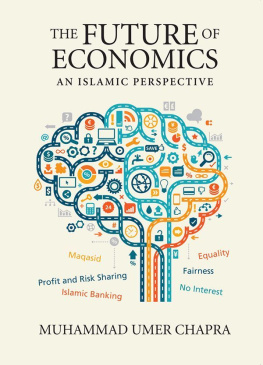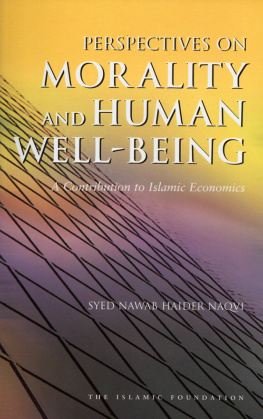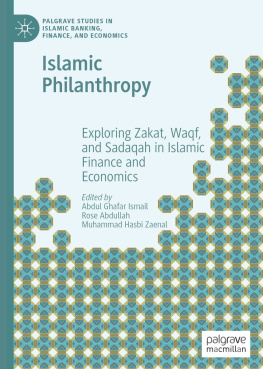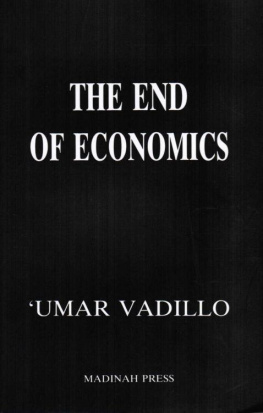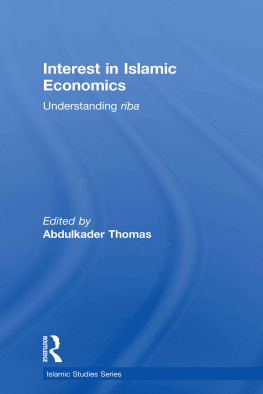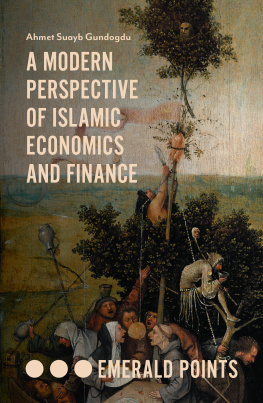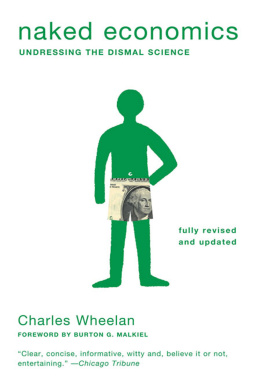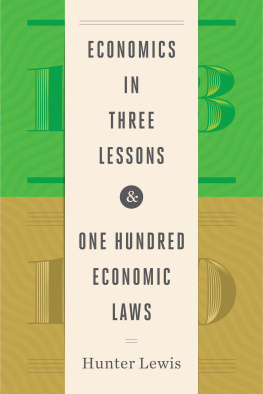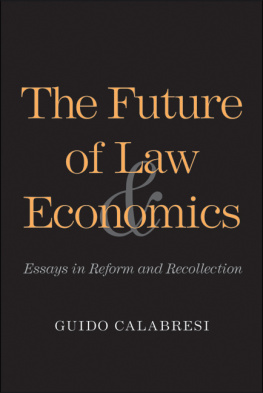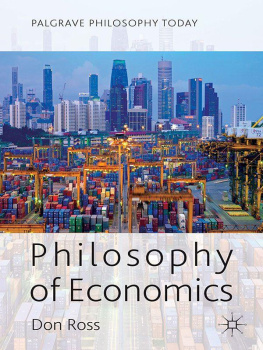M. Umer Chapra - The Future of Economics (Islamic Economics)
Here you can read online M. Umer Chapra - The Future of Economics (Islamic Economics) full text of the book (entire story) in english for free. Download pdf and epub, get meaning, cover and reviews about this ebook. year: 2016, publisher: Kube Publishing Ltd, genre: Politics. Description of the work, (preface) as well as reviews are available. Best literature library LitArk.com created for fans of good reading and offers a wide selection of genres:
Romance novel
Science fiction
Adventure
Detective
Science
History
Home and family
Prose
Art
Politics
Computer
Non-fiction
Religion
Business
Children
Humor
Choose a favorite category and find really read worthwhile books. Enjoy immersion in the world of imagination, feel the emotions of the characters or learn something new for yourself, make an fascinating discovery.
- Book:The Future of Economics (Islamic Economics)
- Author:
- Publisher:Kube Publishing Ltd
- Genre:
- Year:2016
- Rating:4 / 5
- Favourites:Add to favourites
- Your mark:
- 80
- 1
- 2
- 3
- 4
- 5
The Future of Economics (Islamic Economics): summary, description and annotation
We offer to read an annotation, description, summary or preface (depends on what the author of the book "The Future of Economics (Islamic Economics)" wrote himself). If you haven't found the necessary information about the book — write in the comments, we will try to find it.
The Future of Economics (Islamic Economics) — read online for free the complete book (whole text) full work
Below is the text of the book, divided by pages. System saving the place of the last page read, allows you to conveniently read the book "The Future of Economics (Islamic Economics)" online for free, without having to search again every time where you left off. Put a bookmark, and you can go to the page where you finished reading at any time.
Font size:
Interval:
Bookmark:
Islamic Economics Series 21
THE FUTURE OF
ECONOMICS
An Islamic Perspective
M. UMER CHAPRA
THE ISLAMIC FOUNDATION
Copyright The Islamic Foundation, 2000/1420 H
Published by
The Islamic Foundation
Markfield Conference Centre, Ratby Lane,
Markfield, Leicester LE67 9SY, United Kingdom
Tel: (01530) 244944, Fax: (01530) 244946
E-mail:
Web site: www.islamic-foundation.org.uk
Quran House, P.O. Box 30611, Nairobi, Kenya
P.M.B. 3193, Kano, Nigeria
ISBN 0 86037 275 8 (HB)
ISBN 0 86037 276 6 (PB)
eISBN 978 0 86037 656 9
All rights reserved. No part of this publication may be reproduced, stored in a retrieval system, or transmitted in any form or by any means, electronic, mechanical, photocopying, recording or otherwise, without the prior permission of the copyright owners.
Views expressed by different authors of books and studies represent their personal views and do not necessarily represent the views of the Islamic Foundation
Type-setting by: N.A. Qaddoura
Cover design: Imtiaze A. Manjra
To
my wife, Khairunnisa,
without whose help and cooperation
this book may not have seen
the light of day

Contents
The economic problems of man are as old as mans existence on the planet. So is the human effort to resolve them, not only to make both ends meet, but to make life more comfortable and to enhance their power to mould things according to their vision. What to consume? How to produce? How to distribute? These have remained key issues during mans struggle throughout the millennia of known and not-so-known history. While economic ideas, goals, technologies, policies and arrangements have always been there, however crude or developed and sophisticated they may be, the organized discipline known as Economics emerged only around the mid-eighteenth century. The mainstream science of economics grew, by and large, in the context of the postindustrial revolution phase of modern capitalism. The current paradigm of economics has taken shape against this background.
Economic approaches and efforts in the past were inescapably intertwined with the peoples moral, religious and cultural perceptions, aspirations and apprehensions. Peoples worldview, vision of society and value-framework spelling out the desirable and disdainful played a very important and visible part in the making of their economic decisions. Self-interest, wealth creation, and property relations remained the centre-piece, yet every culture and religio-ethical framework had its own moral ethos the two major influences on the human mind, as German philosopher Immanuel Kant puts it were: the starry heavens above and the moral law within.
The current paradigm of economics, however, has two dominant characteristics. Firstly, economics developed as an integrated discipline, around the nucleus of self-interest, private enterprise, market mechanism and profit motive, making a heroic effort to resolve all economic problems within this self-contained matrix. Secondly, this paradigm virtually delinked economics from all transcendental moorings and the concerns of ethics, religion and moral values. The new approach was out and out secular, this-worldly, positivistic and pragmatic. Normative considerations were either systematically excluded or so marginalized that their relevance became problematic, at least as far as mainstream economics is concerned.
In view of these over-arching influences, economics moved further and further away from its philosophic and ethical roots, and became a network of mechanical relations that were susceptible to tools of quantification and prediction. Efficiency and wealth-creation became the key concepts. Consequently the considerations of equity and well-being, which were an integral part of the decision-making processes in the earlier phases, were down-sized, eclipsed and made almost inconsequential. The present crisis of economics, as also of capitalism, can be traced back to this process. Schumpeter prophetically summed up this down-the-drain movement when he said: Capitalism creates a rational frame of mind which, having destroyed the moral authority of so many institutions, in the end turns against its own.
Economics, as it has developed in the context of the capitalistic system, is now one of the formidable social scienes of our times. The last two hundred years have witnessed innovative developments, sharpening of methodologies, greater sophistication with extensive use of mathematical tools of analysis and econometric models of evaluation and prediction. The economic transformation of societies and unprecedented growth in production of goods and services radically changing life-styles of huge populations and regions have played an important role in building the economic power of the developed industrial countries of the world, resulting in their global hegemony. Capitalism and mainstream economics are forces behind the creation of this new world of affluence and power. Socialism and the economics of a planned command economy appeared as a challenge from within the Western civilization, but after a powerful interlude, spread over some seventy years influencing the lives of around half of the worlds population, have receded and collapsed although they are not totally eliminated from the field (China being a case in point).
The capitalist system remains the dominant force, even though its claim to be capable of solving all the problems of mankind through the premium mobile of market mechanism is increasingly questioned. One may not fully agree with all sides of Alexander Solzhenitsyns warning (New York Times, 28 November, 1993), yet its relevance as far as the failures of capitalism are concerned are not in dispute. He said: Although the earthly ideal of socialism-communism has collapsed, the problems it purported to solve remain: the brazen use of social power and the inordinate power of money, which often direct the very course of events. And if the global lesson of the twentieth century does not serve as healing innoculation, then the vast red whirlwind may repeat itself in entirety. William Wolman and Anne Colamosca capture the current intellectual mood when they conclude their recent study on this note: Fortunately there are signs that the virtues of unchecked global capitalism are being questioned, and in the most unexpected venues. The need to place limits on global capital was a basic theme at the early 1997 meeting of the august Davos Conference, which brings together economic and political leaders from around the world. Reporting on the thrust of the conference, Thomas Friedman of the New York Times raised the possibility that the backlash against those who would like to construct the world on a one-dimensional basis, where commerce is everything, where only financial accounting matters, he writes, could easily encounter a potential moral blacklash against globalization. (The Judas Economy: The Triumph of Capital and the Betrayal of Work by William Wolman and Anne Colamosca, Addison-Wesley, New York, 1997, p.221.)
Strands of serious critical rethinking are visible in the writings of leading economists. Notable Laureate Paul Samuelson of MIT laments the disarray into which economic theory has fallen. He warns, there are no signs that we are converging towards a philosophers stone that will cause all the pieces to fall neatly into place. Professor Otto Eckstein of Harvard says, we are always one inflation too late in specifying the exact form of the price-forecasting equation. Robert Heilbroner goes a step further when he says, Economists are beginning to realise that they have built a rather elaborate edifice on rather insubstantial narrow foundations. (See Crisis in Economy or Economics by Wilfred Beckerman,
Next pageFont size:
Interval:
Bookmark:
Similar books «The Future of Economics (Islamic Economics)»
Look at similar books to The Future of Economics (Islamic Economics). We have selected literature similar in name and meaning in the hope of providing readers with more options to find new, interesting, not yet read works.
Discussion, reviews of the book The Future of Economics (Islamic Economics) and just readers' own opinions. Leave your comments, write what you think about the work, its meaning or the main characters. Specify what exactly you liked and what you didn't like, and why you think so.

